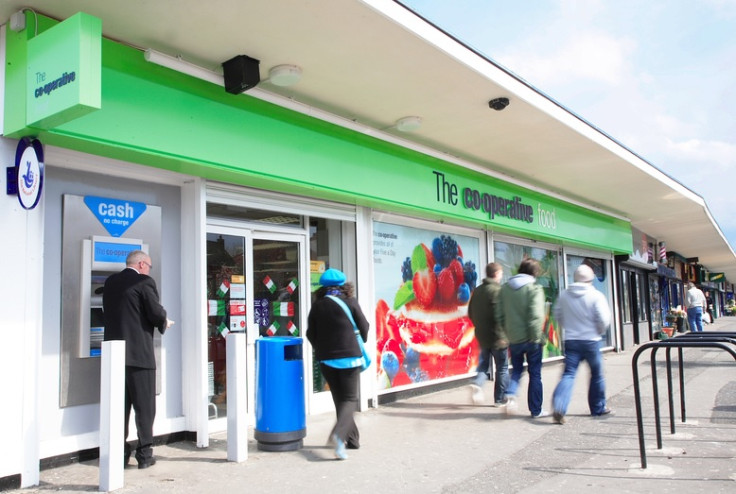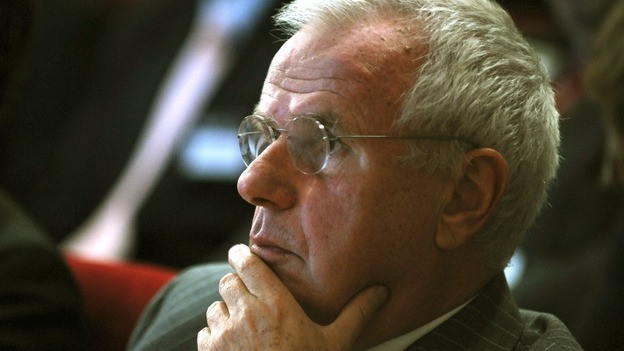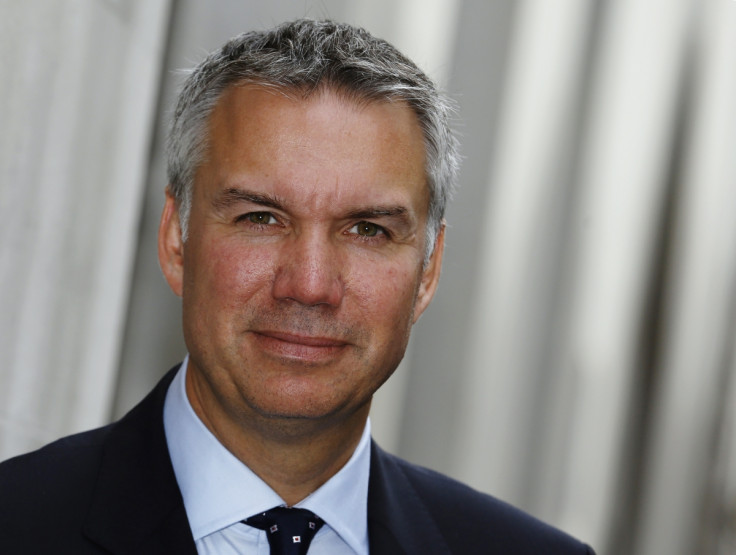Should We Let 'Ungovernable' Co-op Fail If Its Board Keeps Resisting Change?

Another week and another dose of embarrassment for the Co-operative Group as the man charged with the task of turning around the embattled company decided to leave because staff allegedly refused to accept his reforms.
Lord Paul Myners was drafted in, with the princely salary of £1 last year, to help overhaul the group's governance and structure and to assist in plugging the bank's £1.5bn (€1.8bn, $2.5bn) capital black hole.
To make his job even more tough, part of his task within the review was to try and drag the 'ethical lender's' name out of the dirt after its former Chairman, Paul Flowers, was arrested and placed on bail for his alleged involvement in an illegal drugs and sex orgy scandal.
He also had to wade through the debris from the explosive resignation of the group's newly appointed chief executive, Euan Sutherland, after he claimed the group was simply "ungovernable".
To put it simply, he had enough, but did Sutherland have a point?
Governing the Ungovernable
The same board, which has defended its decision to appoint Flowers in the first place and left the lender with a collosal capital black hole, found Myners' senior executive board reforms deeply unpopular.
"Our position is we are working towards and support the view that reform is needed. But if the group is simply presented with a menu that presents the Myners proposed position we will not support it," said Patrick Gray, president of the Midcounties Co-op.
Previously, Myners had said that he would quit if his proposals are rejected.

"The resignation of a senior director and CEO within weeks of each of is part of the on-going omnishambles at the Co-op group," Professor Andre Spicer at Cass Business School of City University London.
"Lord Myners resignation signals that the traditionalists have won the governance war. The introduction of PLC style governance with a small board of experienced corporate figures now looks unlikely. Instead the group are likely to continue with some version of its traditional governance structure and thus may hold onto the democratic traditions of governance."
The Co-op Bank is one of UK's smallest lenders with 6.5 million customers and a 1.5% share of the current account market. However, it is a household name in Britain, as the wider group includes supermarkets, funeral services and pharmacies.
At the end of November, the Co-op revealed that Flowers scandal prompted a number of customers to leave its bank.
"Unless the group takes urgent steps to reform its governance so that it generates sustainable economic value, it will run out of capital to support its business," said Myners previously.
"Failings include a series of costly strategic misjudgments that have undermined the group's competitive position and severely eroded its capital base. The group board have collectively presided over losses of several billion pounds in the course of the last few years."
Warwick Business School Professor of Strategic Management Michael Mol seems to agree.

"Given where the Co-op Group is now, it would be wise to implement some of the recommendations made by Lord Myners in his report, such as a smaller and more professional board. It should also consider running its businesses, many of which are successful, on a more stand-alone basis," said Mol.
"The Co-op Group has been facing lots of headwind due to some really poor decision-making. In particular the acquisitions of Britannia, now Co-op banking group, and the Somerfields supermarket chain have not worked out well. There is lots of evidence from academic research that most acquisitions fail and that most efforts at diversification fail, so Co-op Group was never going to find it easy to succeed with these acquisitions."
A Co-operative Versus a PLC
Sutherland's comments and Myners' resignation is starting to make more sense to the wider public as it highlights the differences between a true co-operative group and a regular public limited company (PLC).
"It is clear there are problems with the current co-operative governance structure. Adopting a PLC style board structure might not be right for the Co-op, but the group does need to rethink how it governs itself," said Spicer.
"It might take inspiration from other co-operatives overseas which typically have smaller boards. It could also look at other successful models such as employee owned organisations.
"The group's management will be overwhelmed with fire-fighting. This could mean management takes its eye off the big strategic questions."
But is this just an excuse?
According to the latest research from Institute of Customer Service, entitled The Structures for Success Report, sole co-operative company structures can lead to very bad decision making and lead to damaging relationships with its customers.
"This research is important and a timely contribution to the debate about business ownership models, with a partnership approach being suggested for the BBC and different opinions on restructuring the Co-operative Group," said Jo Causon, CEO of the Institute of Customer Service.
"It is clear it would be neither feasible nor desirable to change an organisation's business model entirely, but a hybrid model, incorporating key characteristics of other models to improve agility and responsiveness, offers real potential."
Should We Let it Fail?
While the co-operative structure is not purely to blame, the major selling point for group overall is that it is 'ethical'.
Maybe that's why the public seem to be rather patient with the group that seem to dominate our headlines with set-backs and embarrassments.
But should we let it fail?
"One thing is certain, the Co-op model is vital to the UK economy," said Spicer.
"Co-ops are typically more productive than traditional companies. They offer an alternative business model in sectors which are increasingly dominated by just a handful of corporations."
The Co-op has to change to survive the capital black hole debacle. It is now mainly owned by hedge funds.
Meanwhile, it has slashed the amount of lending it does for charities and political parties after it cut back dramatically on the number on credit cards it offers to these groups, which provide crucial funding to those sorts of non-profit organisations.
According to the bank's website, only Friends of the Earth, Oxfam, RSPB, Save the Children and the Woodland Trust remained on its special credit card offerings list.
These types of credit card, which form part of Co-op's ethical lending mandate, were previously provided to 18 groups in total, including the Liberal Democrats and Labour.
So where next for the Co-op?
It has a raft of scandals to sort out but perhaps, most simply, the board should just do as it is told.
"The co-operative structure of the group is not in itself a problem, as around 165 successful years of Co-op Group in the UK have proven. But the indirect, layered manner in which the Group appointed people to the board meant that it did not necessarily put the most talented and experienced people in charge of the Group as a whole," said Mol.
© Copyright IBTimes 2025. All rights reserved.






















